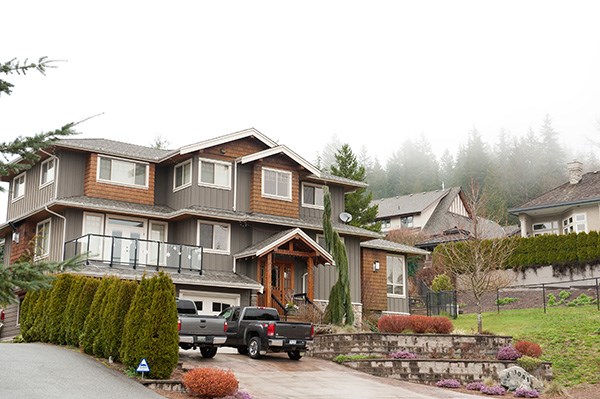You have likely heard plenty of stories like Becky Tomlin’s over the last few years.
Squamish’s housing crunch forced Tomlin and her husband to move out of the district.
The couple was renting a home in Squamish last fall when the owners sold their place.
“After talking with them they revealed that our $900 rent was just not enough to cover their new mortgage. They wanted to up it to $1,400, but we settled on $1,200,” Tomlin said last week from her new home in Whitehorse, Yukon.
The Tomlins both had good jobs locally, so they looked into buying a home of their own. They were about to put an offer on a mobile home they could afford, when someone bought it out from under them for more than the asking price, Tomlin recalled.
When she was offered a job in Whitehorse in November of 2015, the couple made the decision to move up north.
“We both have well paying jobs here and are looking at being able to buy a house and some property next summer,” Tomlin said. “We are finally able to get ahead here and save. In Squamish we were living paycheque to paycheque, just getting by. We miss our family and loved Squamish, but it just didn’t make sense to live there.”
The Squamish Chamber of Commerce held a forum on housing on Nov. 22 that brought together representatives from government, social services, industry and business to discuss and brainstorm solutions to Squamish’s current housing crunch.
Most agreed the situation is at a crisis point and something needs to be done soon if Squamish wants to remain a desirable place to live and work.
Making it difficult to find a place to rent, Squamish has the lowest apartment vacancy rate in the province at zero per cent, according to the Canada Mortgage and Housing Corporation Rental Market Report.
And the benchmark price (which represents a typical property) increased 33 per cent for a townhouse to $636,200 in September since last year, according to the Real Estate Board of Greater Vancouver.
Apartment units have a benchmark price of $367,800, up 31 per cent over last year. And single-family houses come in at $787,200 – a 29 per cent jump in a year.
Panelist and Sea to Sky Gondola general manager Kirby Brown said his company, which employs about 250 people during peak season, provides a house in Squamish specifically for employees.
“The number one employee complaint was a lack of affordable housing… We have managed to rent one home, 10 beds,” Brown said, adding the one house isn’t sufficient. The company could easily fill two or three homes, he said.
A wide variety of issues and solutions were raised at the forum. One thing most seemed to agree on was that a housing authority for Squamish would be a good idea.
Brown was formerly on the board of the Whistler Housing Authority and said, while the decisions made by the authority were never easy and seldom popular, it was a necessary and ultimately successful entity.
“It is fraught with peril, but you have to do it and you need to do it soon… It needs to be coordinated by someone with a vested interest in retaining people in the community and that is their purpose,” he said.
About 80 per cent of residents in Whistler work in the resort community, according to Brown.
The Whistler authority is an independent, municipally owned corporation that “oversees the development, administration and management of resident restricted housing in Whistler,” according to its website.
District of Squamish councillor and co-chair of the district Housing Task Force Jason Blackman-Wulff said that one of the recommendations to come out of the committee’s work was for the district to hire a housing coordinator for Squamish.
“[The coordinator] would work with the local partners to get projects on the go and get our share of the housing money,” he said.
Wulff also said about 5,000 units are soon coming to Squamish that will be priced in the $400,000 to 500,000 range.
“Every rezoning that has come to us we have pretty much approved,” he said.
“It is an insatiable demand and unless something major happens in the Metro Vancouver housing market there’s always going to be more people willing to come here. So we need to be very pro-active.”
The district has been building an affordable housing fund out of community amenity contributions over the last two years that is going to be at about $2 million by the end of this year.
“That allows us to work with other government partners to leverage that money to build the units that we need,” Blackman-Wulff said, adding he wants not only units that require subsidies, but rentals for middle-income individuals as well.
Brown said that the housing issue is complex and no one solution will solve all the problems residents face.
“You need to think of it as an ecosystem and look at everything from subsidized, affordable housing all the way through to the free-market rental,” he said.
This article has been modified from the original version.




